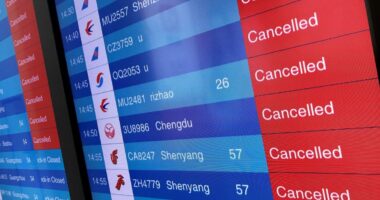Thailand has postponed the reopening of some key cities and tourist destinations to foreign tourists in order to conduct a safety assessment. The country’s tourism industry is already struggling with the impact of political unrest, but this latest development will further damage its reputation.
Thailand has postponed the reopening of key cities to foreign tourism, due to a recent outbreak of Middle East Respiratory Syndrome (MERS) in South Korea. MERS is a respiratory disease that can cause coughing, shortness of breath and pneumonia. Read more in detail here: when will thailand reopen to tourists without quarantine.
Thailand has decided to postpone the reopening of Bangkok and a few other key tourist destinations to foreign visitors from October until November, as planned.
The Thai government had planned to open its capital city and a few other important destinations—namely, Hua Hin, Pattaya, and Chiang Mai—to international visitors on October 1 under a special program as recently as early September.
However, the country has fallen short of its immunization goals. “We have to put back the deadline to November since the cities we’ve targeted haven’t achieved 70 percent vaccination rates,” Tourism Authority of Thailand (TAT) Governor Yuthasak Supasorn told Reuters on Wednesday. According to official statistics, just 44 percent of Bangkok’s population has got both doses of an authorized COVID-19 vaccination thus far.
The Southeast Asian nation had hoped to inoculate 50 million people with at least their first COVID-19 injection by early October when the summer began. Thailand has failed to make progress with its own vaccine deployment, despite serving as a manufacturing center for the AstraZeneca vaccine. According to Johns Hopkins statistics, fewer than 23% of the country’s projected 72 million people are completely vaccinated at this time.
In a trial initiative for tourism reactivation, Thailand’s resort island of Phuket started allowing quarantine-free entrance to fully vaccinated visitors from pre-approved nations (including the United States) on July 1. 70 percent of the local population have to be completely vaccinated by the launch date to allow the reopening.
This so-called “sandbox” system was secretly extended to Koh Samui on July 15, requiring vaccinated foreign tourists to stay at an authorized hotel on the island before being permitted to depart on Day Four. Tourists are also allowed to visit the nearby islands of Koh Tao or Koh Phangan after their first week.
The goal is to duplicate similar strategic reopenings in other important sites to help Thailand’s vital tourist industry attract more international visitors. With 40 million visitors in the year before to the pandemic, the sector contributed more than one-fifth of Thailand’s gross domestic product. It hopes to attract just one million foreign tourists this year.
The thailand travel restrictions is a post that discusses the postponement of key cities to foreign tourism.



